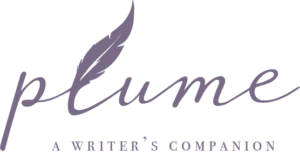What’s All the Fuss About Genres?
The word “genre” gets thrown around a lot. Sometimes it’s in the phrase “genre writing”, meaning writing that fits into a specialized category such as romance, science fiction, or horror. Another way we see this term applied is when referring to different styles of writing, such as fiction, nonfiction, and poetry. When I went to graduate school, The Powers That Be asked us to each pick a primary genre to apply to the program with and then write in once we arrived (though some resisted this and turned in some pretty kick-ass hybrid dissertations). I chose fiction because I was excited about it and because it was all I knew how to write.
But over the years, another genre has been creeping into my life.
Dabbling in Another Creative Writing Style
This creeping started in my MFA program. We were required to take at least one workshop in another genre, so I chose creative nonfiction because poetry terrified me (more about that later). The nonfiction workshop required two essays. In one I was really just messing around with form and complaining about a painful break-up I’d just gone through. I’m sure if I were to come across that essay now (which I think is long gone–fingers crossed…), it would be excruciating to read, not because I’m still invested in a decade-old break-up, but because it was such a whiny, unpolished pile of footnotes (Yes, there were footnotes. I’ve actually been trying my hand with this again recently, but they can be tricky to pull off). But the other essay I wrote for that class became my first step towards calling myself a multi-genre writer. It was about my mother (because of course), and although some of my fiction up until that point had held many autobiographical elements, this was the first time I let myself be completely vulnerable in a piece of writing and lay everything bare. It was terrifying and exhilarating. It was quite therapeutic to finally tell this story that had been inside of me all my life. I sent it out for a couple of years before it got picked up by a literary journal, and eventually it even received honorable mention in Best American Essays that year, which left me somewhat gobsmacked. All this is to say, I resisted writing nonfiction for years, and it turned out to be a strength I never knew I had.

The Upside of Genre Swinging
If working in one particular genre works well for you and you feel no need to explore, great! But I do think there’s something to be said for stepping outside your comfort zone. Not only does it make you a more versatile writer, but you often bring strengths you didn’t know you had from one genre to another. For example, I’ve seen poets write some pretty astounding, gorgeous prose because they are so well-versed (ha!) in language and pay attention to every part of a sentence.
According to my Plume partner, Jennifer: “I think when you work outside your genre you can separate yourself and can brutally assess. You’re not so attached.” I couldn’t agree more! It’s easier to take risks and write boldly if you feel like you’re just “dabbling” or it’s not your “primary genre.” I don’t think I’m someone who will ever work in poetry (though never say never, right?) because I’m too wordy and because it feels like such a specialized, technical genre IMHO, but creative nonfiction has definitely rooted its way into my heart. Other than novels, I think I spend the most time on my essays because I want to get them just right, to prove myself in the field.
So this week, I’ll leave you with a prompt. It’s up to you how you want to approach it, but I do ask that you try to write it in a genre different from the one that you’re most comfortable in. Why not try to write a short play? Or a haiku? Something you’ve never tried before! Let us know on social media what you come up with: Twitter, Instagram, and/or Facebook.
The prompt: Her success was imminent.
Happy writing, plumers!

